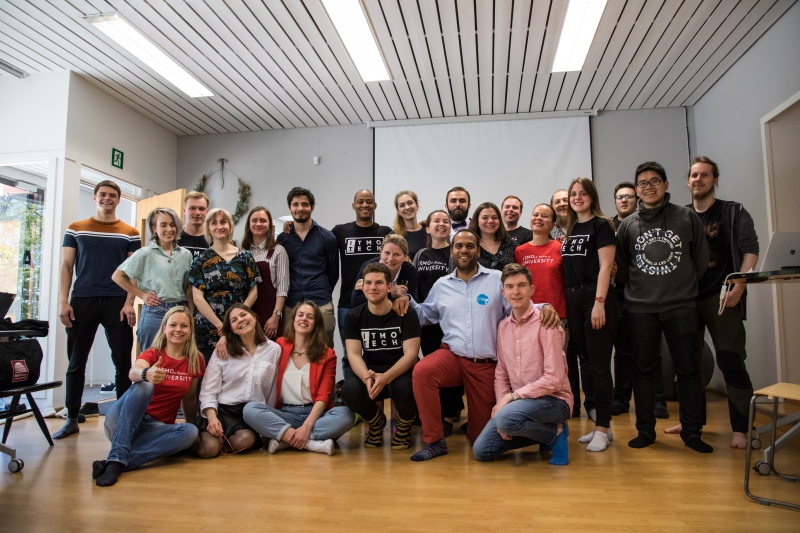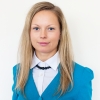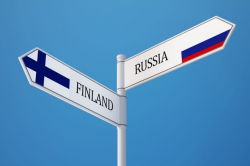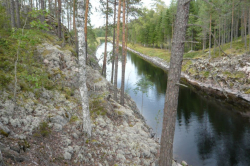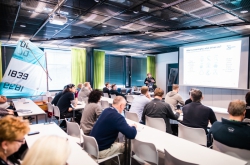All in all, 24 students (12 from each side) from ITMO University and the South-Eastern Finland University of Applied Sciences (XAMK) took part in InnoCamp. As part of the Startup Connect project, students of the two universities spent six weeks working in teams on real cases from the project’s partner companies. Afterwards, the students traveled to the Finnish town of Kotka, where they stayed from May 12 until May 17. According to Elena Gavrilova, the head of ITMO’s Entrepreneurship Center, participation in the project allowed the students to acquire new knowledge, skills, and international experience as well as expand their portfolio and international connections.
InnoCamp’s mentor team included Erik Kristiansen, a Danish entrepreneur, Dr. Neal Hartman, a senior lecturer in Managerial Communication at the MIT Sloan School of Management, Dr. Shai Vyakarnam, the former director of the Bettany Center for Entrepreneurship at Cranfield, Sabine Suorsa, a lecturer at South-Eastern Finland University of Applied Sciences, and Elena Gavrilova, the head of the Entrepreneurship Center at ITMO University.
In the course of the program, teams underwent training in Finland and were accompanied by experienced mentors at every stage of development. Each student went the whole way from generating ideas to suggesting practical recommendations for the implementation of final projects.
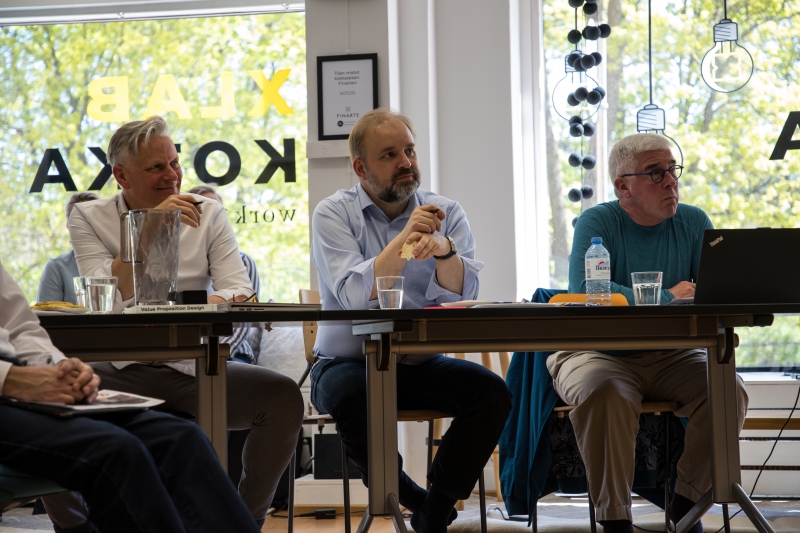
As a result, the teams proposed their creative solutions to given cases. For instance, the participants had to: find ways of turning a Vyborg seaport into a cluster of restaurants, art spaces, and even a “beauty island” for European tourists; transform a former Kotka port into a state-of-the-art business space including an innovative lab, lecture hall, student campus, and leisure areas; turn a Helsinki airfield into a hub for small aircrafts with plane rentals, an aviation museum, educational center, and drone development and testing center; and even transform a disused railcar factory into an eco-minded creative space with a vegetable garden and recyclables collection areas. This space would also host restaurants, stores, a hotel, a cinema, and several gyms.
At the camp, students developed their projects with the support of top experts in innovative entrepreneurship from the UK, USA, Denmark, Finland, and Russia, acquired experience of working and communicating in English, visited the real locations they were to modernize, and lodged at a five-star campground on the coast of the Gulf of Finland. At the end, the teams presented their solutions to an expert jury, with each project getting the chance to be implemented in real life. ITMO.NEWS asked the students about their most memorable experiences at InnoCamp.
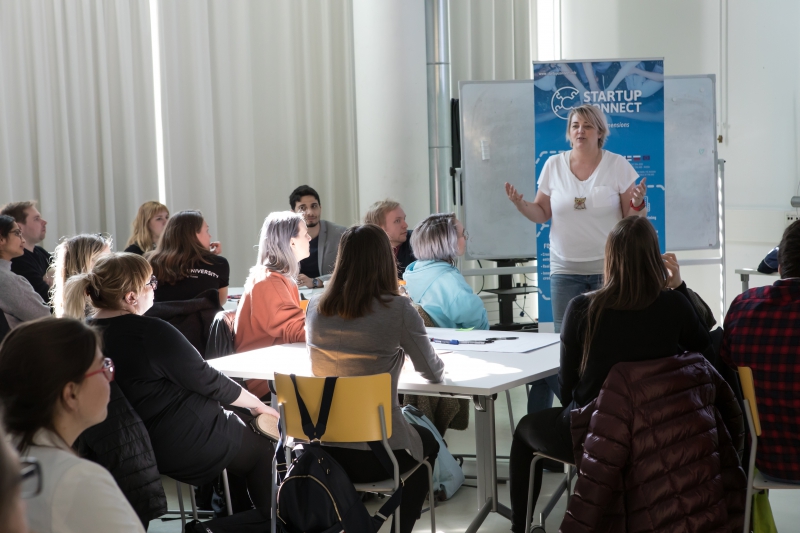
Viktoria Gribovskaya, second-year student at the Faculty of Technological Management and Innovations
Our team was tasked with modernizing a Helsinki train factory. Bruce Oreck, an American diplomat and former US Ambassador to Finland, bought this building on the request of locals. Since the factory is no longer operational, but the building itself is impressive and atmospheric, the locals wish to give it a “second life”; after all, it’s become quite fashionable these days to adapt old factories into creative clusters.
Since a member of my team resides in Helsinki, she was able to go there to take some pictures and speak to the project’s curator. This helped us understand the potential of that location. Each of our team members was responsible for a specific function: design, marketing, finances, and overall concept. During the remote stage, we tried to learn as much as we could about the citizens of Helsinki and similar locations in Finland. We wanted to develop the general aspects of the project and get into the specific stages of it once we got to Kotka. We also built a mockup of the building to gauge its scale and how much it can fit inside itself: hotels, hostels, restaurants, cafes, a vegetable garden, coworking areas, and even a rock climbing gym. We decided to go with an eco-friendly theme for the concept, as in today’s world you really have to understand the value of nature and our role in preserving it.
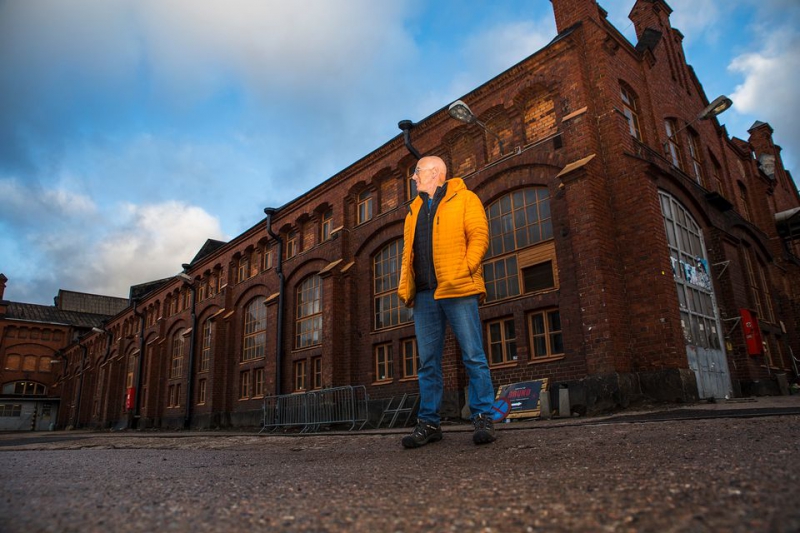
In addition to project work, our stay in Kotka included yoga sessions in the morning, Latin dance classes, good music, and great conversation by the fire in the evenings. Since every participant had the chance to share their talents, each initiative was well-received.
I have especially good memories of our lecturer Neal Hartman, who teaches at the MIT School of Management. His lecture on public speaking was incredible useful to me because I got to use what he taught us when we presented our project. The most valuable thing for me was the ability to experience working in an international team and apply my knowledge in an actual project, as well as meet some great like-minded people. I think every project has the chances to be implemented one day; time will tell.
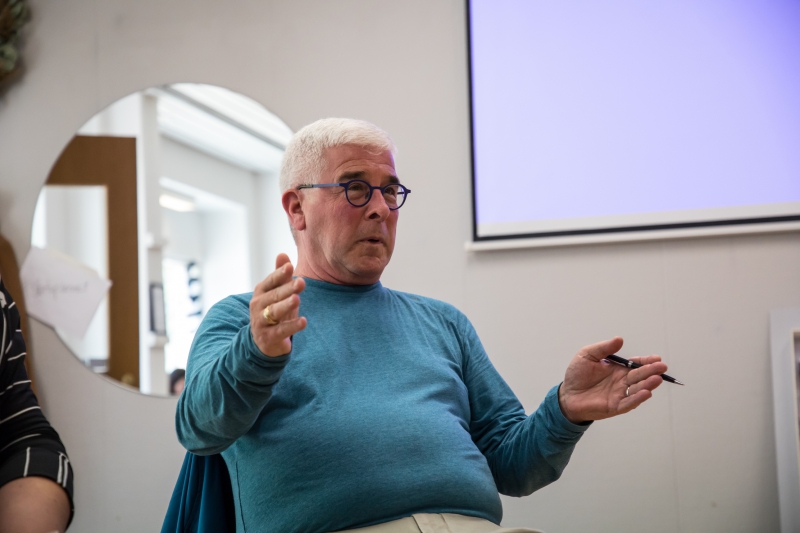
David Virabanyan, fourth-year student at the Faculty of Food Biotechnologies and Engineering
Our team (four students from ITMO and one student from XAMK) developed a marketing strategy for a company that makes amaranth flour and oil. What makes their product special is that it’s gluten-free. As the number of gluten-intolerant people grows, this subject becomes more important. The European market is not lacking in gluten-free products, but few of them are 100% organic.
During the first stage we were given a thinking model and vector that would lead us to the right solution. I used to divide mentors into two types: those who share their story of success and try to teach people from their own experience, and those who tell you how to do things right. In fact, both are wrong, because any one person’s story is too abstract to be projected onto others’ lives. When we were in Kotka, Erik Kristiansen gave us the fundamental principles that we were to use as a launching pad; that was the new take on working with fledgling projects.
During the remote stage we gathered all the necessary information about the product and the European health foods market, and split the areas of responsibility between ourselves. In the on-site stage at XAMK Kotka Xlab, we spent a week developing cases, practicing our seven-minute speeches, and attending lectures that would help us look at the projects from different perspectives. On our last day, we defended these projects before a jury made up of representatives of businesses and Finnish government officials who work in that region.
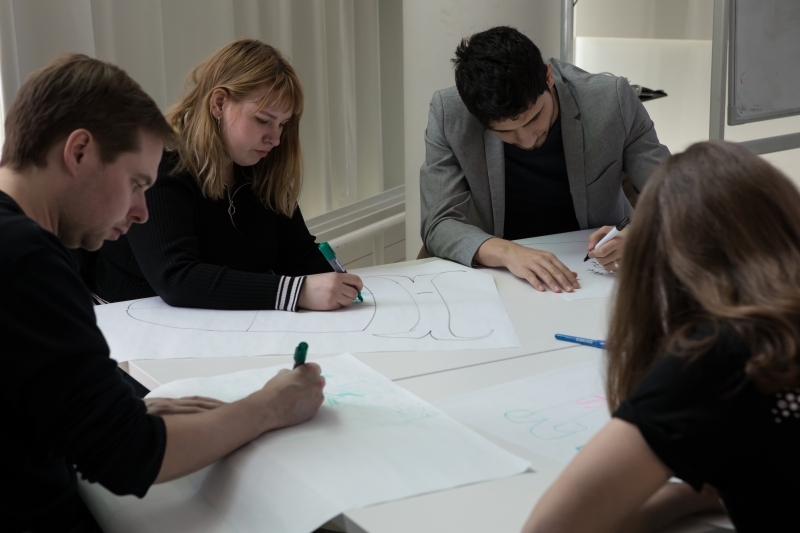
I found all the lecturers memorable. Erik Kristiansen, the SEO of BRAINS, often runs these crash courses where he teaches students to launch projects, and he has a lot of consulting experience. Neal Hartman from MIT Sloan, who teaches communication, told us about public speaking techniques. Shailendra Vyakarnam, one of the authors of Camels, Tigers & Unicorns, shared with us his understanding of the global perspective on the concept of sustainable development.
Even though the project is implemented as part of a cross-border partnership between Russia and Finland, the teams were very diverse and multinational. Many cultures, different approaches, interesting solutions; it was a great experience indeed.
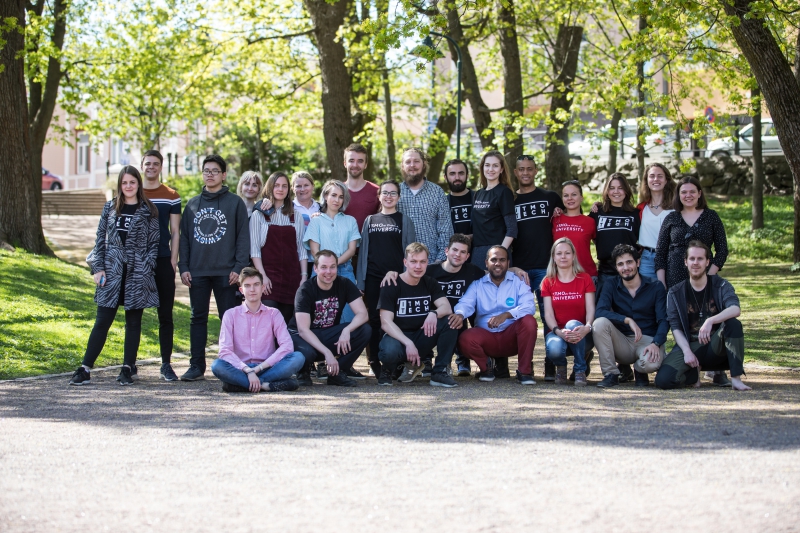
Andrey Popov, first-year student at the Faculty of Control Systems and Robotics
Our team’s mission was a bit different from the others’. We worked on a solution for a real company that was about to hit the European market. This company produces health foods and various ingredients.
This was not an easy task. We were to conduct market analysis, learn as much as we could, develop a brand, and provide suggestions on how to enter a chosen region (in our case, Finland). We were fully and completely responsible for the creation of a successful and, most importantly, functional marketing strategy. And if you take into account that the product we promoted is completely new and has no established market, you could say we practically created our own market. And since we were working with the European market, we faced some difficulties in adapting to different certification procedures, for example. Still, working on cases like this is an interesting and beneficial experience.
During the remote stage we collected data, worked on mini-cases and learned about competing markets. We also learned about our key customers. We would constantly ask ourselves “How can we solve this issue?”, “Why should they buy our product?”, and “Who will be our main customers?”
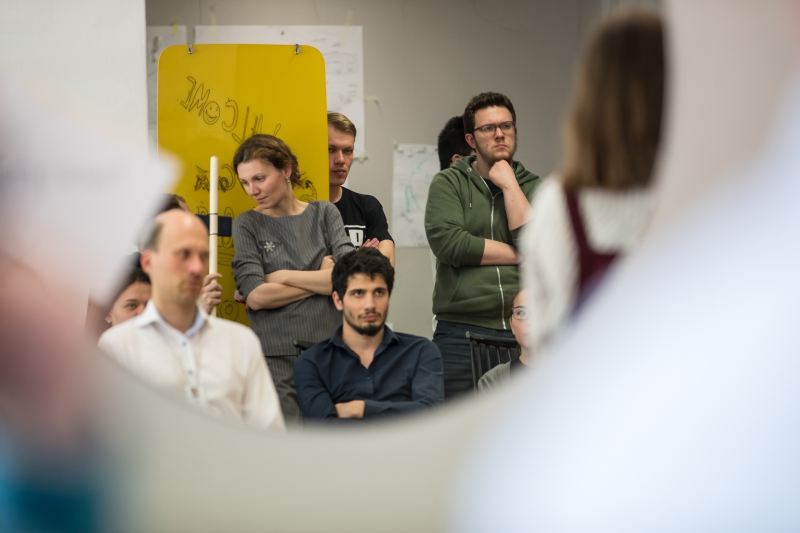
When we came to Kotka, we were astounded at the scale of it all. The atmosphere was captivating: beautiful houses with a view of the sea, great weather, and talented, ambitious people all around us. As each day passed, we immersed ourselves deeper into this atmosphere of educational and working drive. In the end, this project became more than just a case to us. This was something that we’ll keep thinking back to for a long time.
Almost every day we’d have a lecture from the mentors, invited guests, or even ourselves. I found memorable the lecture delivered by Neal Hartman, the MIT professor who told us about public speaking. When you speak or even stand next to people like him, you can’t help but gain some of their impressive energy.
Before and after the lectures we’d be hard at work. Sometimes we took breaks for lunch or for some entertainment. But we always interacted with the other teams. At times we’d help them, at times they’d help us. I think that this kind of interaction is what brought us all to such awesome results. After all, I believe that the most valuable element of this project were the people, their ideas, and the spark that was always in their eyes. When you see how hard they work, you just can’t bring yourself to work less than them. And that’s how each of us got a little bit better all the time.
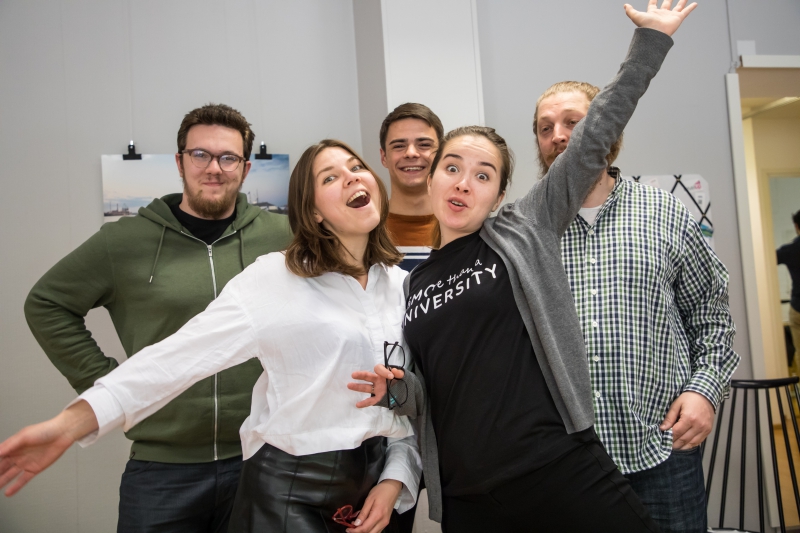
Svetlana Mikhailova, second-year student at the Faculty of Cryogenic Engineering
My team worked on the renovation of the Pyhtää Airfield. Unfortunately we didn’t get to visit the place, but we were given photos, a plan of the airfield, and spoke with the mayor and the director. Our client was the company Redstone, and our main task was to develop a business model taking into account the existing infrastructure.
I suggested building a separate drone hangar; I drew up blueprints of the hangar with the infrastructure necessary to service and store six drones of various cargo-carrying capacities, as well as plans for an area with landing strips for the drones and other features. The hangar is a fully autonomous platform for the design, production, assembly, modification, and repair of drones. Its range of application is wide: from taxi drones to cash-in-transit drones. I also analysed the global trends in regards to modern aviation museums and compiled the information into a succinct, yet thorough summary. Members of my team also suggested running workshops for children.
During the remote stage we discussed the project, and collected and analyzed the data. In Kotka, we had some final discussions and created our presentation. The information we were given during lectures was concise and uncluttered, and our lecturers were very impressive. For me, this was the first event of its kind. Its benefit is that you get to work on a real case, acquire knowledge and experience, and, of course, share what you know with others.
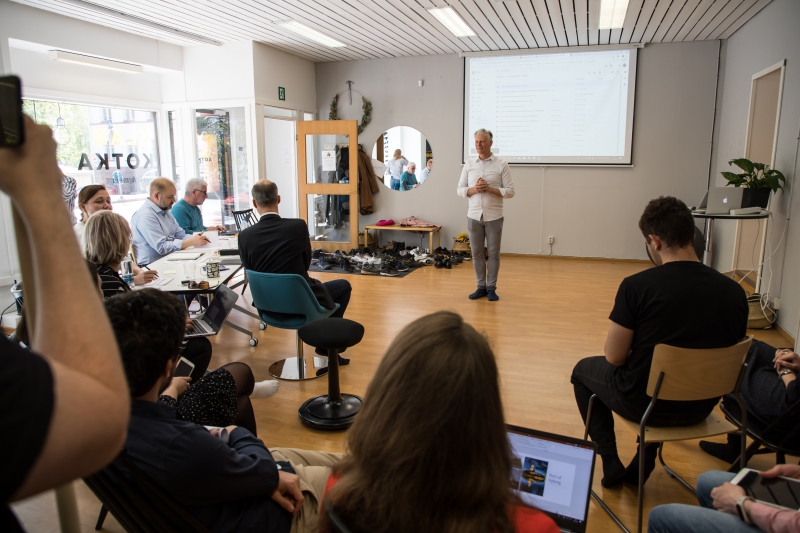
The Startup Connect project is organized by a consortium made up of Cursor, a regional development company for the Kotka-Hamina region (Finland), ITMO University, the South-Eastern Finland University of Applied Sciences (XAMK), and the St. Petersburg Foundation for SME Development. It is co-financed by the European Union, Russian Federation, and the Republic of Finland as part of the South-East Finland – Russia Cross-Border Cooperation Programme 2014-2020.
InnoCamp is a revolutionary new educational program of the South-East Finland – Russia cross-border cooperation project Startup Connect that brings together companies, mentors, and students of two universities for a week at an entrepreneurship camp.
